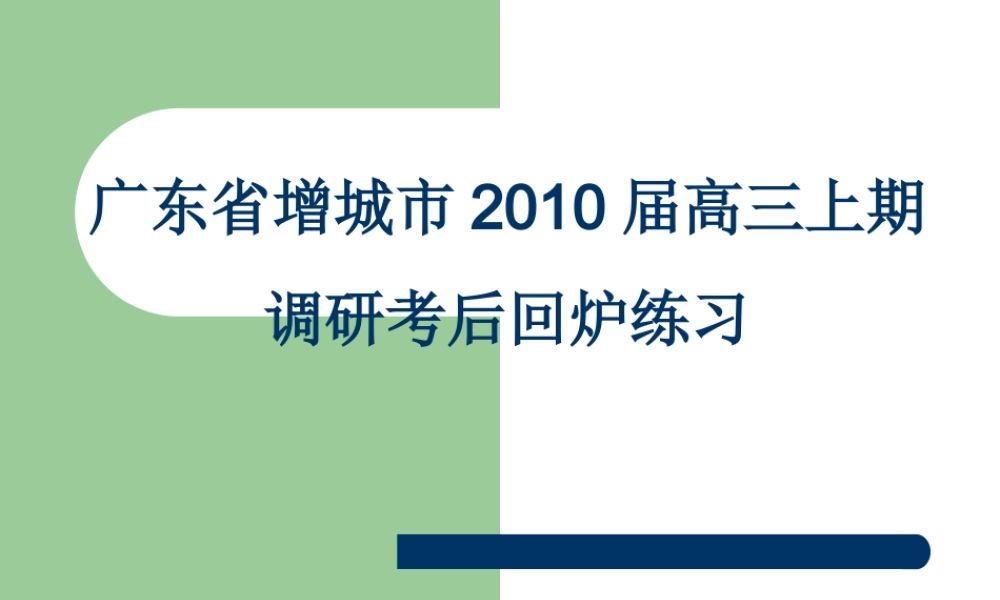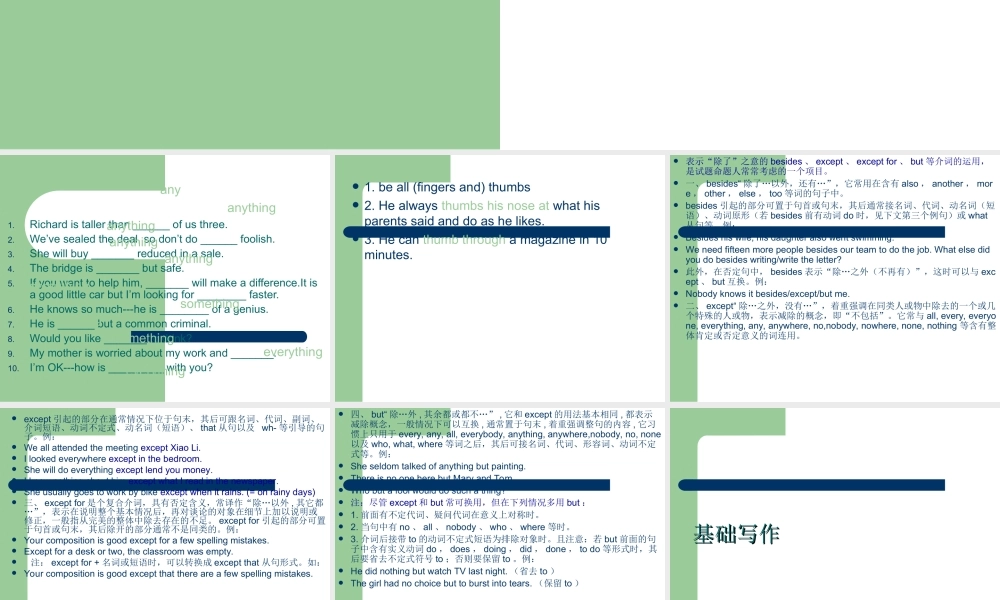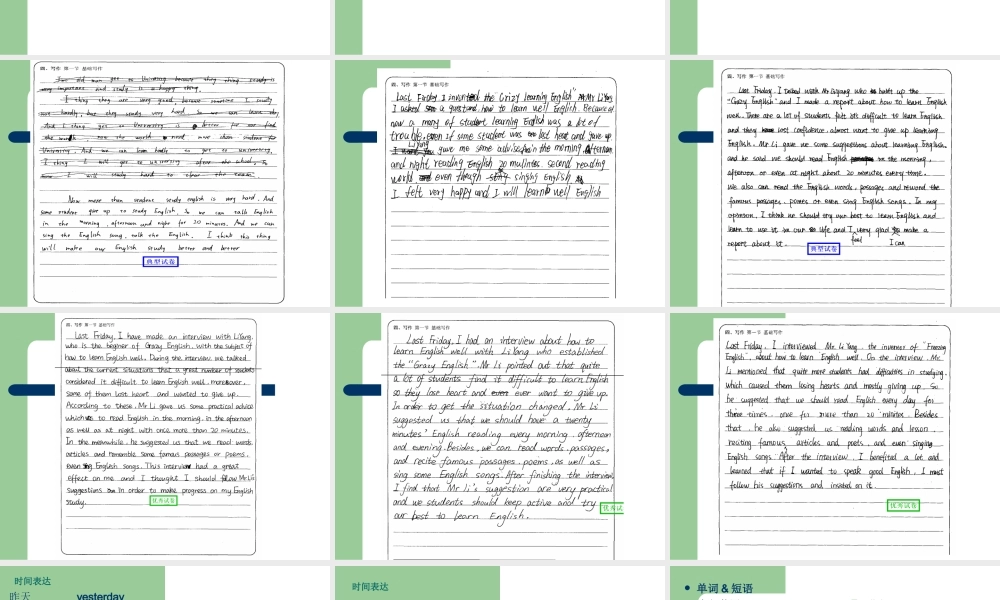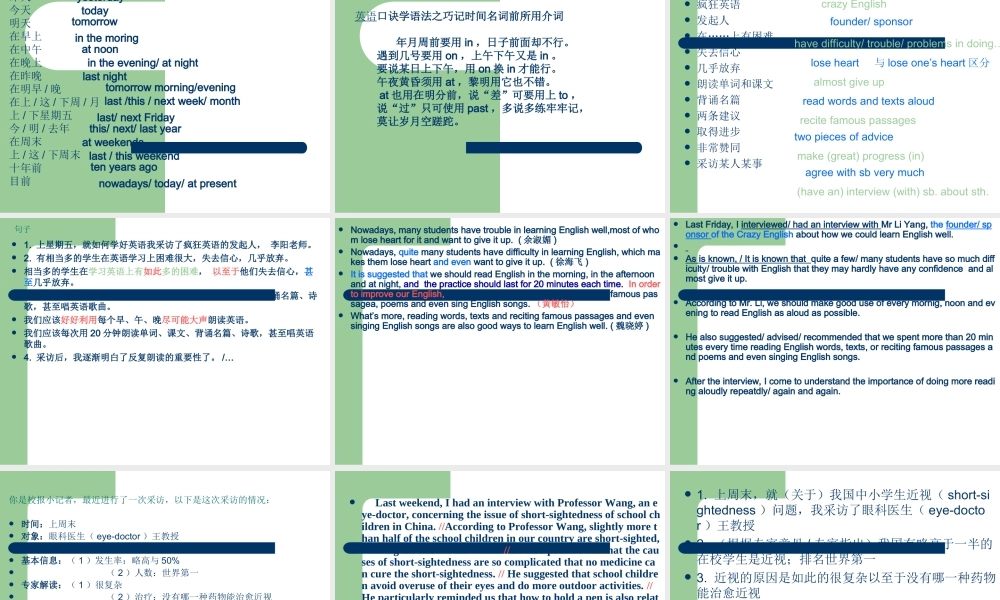广东省增城市 2010 届高三上期调研考后回炉练习 1.Richard is taller than ______ of us three.2.We’ve sealed the deal, so don’t do ______ foolish.3.She will buy _______ reduced in a sale.4.The bridge is _______ but safe.5.If you want to help him, _______ will make a difference.It is a good little car but I’m looking for ________ faster.6.He knows so much---he is ________ of a genius.7.He is ______ but a common criminal.8.Would you like _______ to drink?9.My mother is worried about my work and _______.10.I’m OK---how is _________ with you?anyanythinganythinganythinganythingsomethingsomethingnothingsomethingeverythingeverything 1. be all (fingers and) thumbs 2. He always thumbs his nose at what his parents said and do as he likes. 3. He can thumb through a magazine in 10 minutes. 表示“除了”之意的 besides 、 except 、 except for 、 but 等介词的运用,是试题命题人常常考虑的一个项目。 一、 besides“ 除了…以外,还有…”,它常用在含有 also , another , more , other , else , too 等词的句子中。 besides 引起的部分可置于句首或句末,其后通常接名词、代词、动名词(短语)、动词原形(若 besides 前有动词 do 时,见下文第三个例句)或 what从句等。例: Besides his wife, his daughter also went swimming. We need fifteen more people besides our team to do the job. What else did you do besides writing/write the letter? 此外,在否定句中, besides 表示“除…之外(不再有)”,这时可以与 except 、 but 互换。例: Nobody knows it besides/except/but me. 二、 except“ 除…之外,没有…”,着重强调在同类人或物中除去的一个或几个特殊的人或物,表示减除的概念,即“不包括”。它常与 all, every, everyone, everything, any, anywhere, no,nobody, nowhere, none, nothing 等含有整体肯定或否定意义的词连用。 except 引起的部分在通常情况下位于句末,其后可跟名词、代词、...




